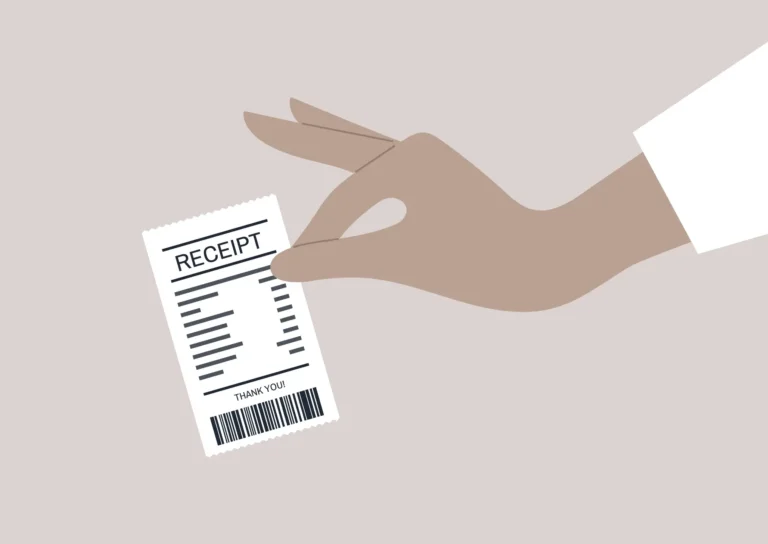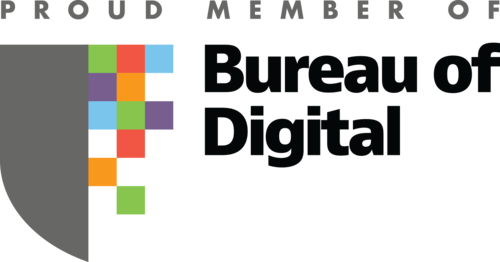Build a network by playing radio host
I’ll be honest with you. When I first started podcasting, it was for the same reason a lot of businesses start a podcast — they want to increase awareness of their company.
I did a Google search of “How to use podcasting to grow your business” and there were pages and pages of results. Not surprising.
The numbers
Since 2016, the number of Americans who have listened to a podcast has increased 11 percent. That means 40 percent of Americans older than 12 have listened to a podcast at some point. Every month, more than 50 million Americans listen to podcasts, and the average listener subscribes to six podcasts.
It’s understandable that brands want to jump in.
Thanks to technology, anyone can record and release a podcast. There are no rules. You can decide what you say, how long you want to record, when you want to release, and where. The barriers to entry are low, and the benefits are high.
According to Entrepreneur magazine, podcasting can lead to higher website traffic and increased conversions. In my experience it offers additional benefits — you can develop deeper relationships with people as you grow your network. It’s also just plain fun.
Let’s talk about the FRP
We started Standard Beagle’s podcast in January 2016 thinking we were going to talk about technology and attract an audience that would be interested in our services. But we quickly grew bored. We stopped running out of topics that interested us. And if we were bored, why would anyone listen?
That’s when we started to play with our format. Instead of us just talking to one another, I invited a friend to talk about something I’m interested in — like SEO. Then we invited another friend, and another, and another. Pretty soon we ran out of friends, and I started inviting people I thought were interesting or who had interesting careers. That’s when we really figured out what our podcast was about.
We were having interesting conversations with interesting people.
And we met some amazing people. We interviewed a painter, a landscaper, the owners of DogBoys Dog Ranch, a party bus owner, lawyers, just to name a few. We even interviewed a woman who is one of those on the listed to go on a mission to Mars. Pretty cool.
Our results
Was our podcast a smash hit? Good golly, no. We were lucky to have 40 downloads a week. That’s pretty paltry considering that some podcasts get 33 million downloads a month. I would love to have those numbers. Maybe with more frequent releases and paying a company to promote us we could increase our downloads.
But we have seen many other benefits. The podcast gave us an excuse to reach out to people we wanted to develop professional relationships with but didn’t just want to sit down to coffee. Coffee can be forgettable. But being invited to be interviewed on a podcast — you just don’t forget that.
Some of the people I invited were shocked at the invitation. They had never been invited before and they were flattered. In one case, about 9 months after we recorded, our guest remembered us and referred a project to us. And because we had developed a relationship, starting right there with the podcast, the referral turned into a wonderful project and collaboration.
It’s all about the relationships with your guests. No one does business with someone they don’t trust. By spending time with a podcast guest, you’re on your way to developing that trust.
Learn from our experience
We learned a lot in our podcasting experience. We made mistakes, and we’re still working on audience, but we’re on our way. Here’s what we learned:
Choose the topic and format that’s right for you. There’s no “right” way to structure your podcast. What does that even mean? Fancy audio and intros sound cool, but if that’s not you, don’t worry!
You can record a 5 minute podcast every day, a 6 hour podcast once a month, or countless ways in between. This is totally your call. Don’t fret about what the experts say. If your topic is interesting, the audience will listen.
In our case, our interviews are about 45 minutes on average. We let them go longer if the guest is really interesting and the conversation is going well. Once I cut the podcast off at 25 minutes because the interview was going nowhere. Don’t be afraid to do that either.
Record quality audio. I can’t emphasize enough how important it is to record good sound. People can forgive a lot of things, but bad audio is tough to overlook. I recommend investing in a quality microphone. We purchased two on Amazon for under $100 each. You will need to spend some time testing your equipment to make sure it sounds good and learning how to set it up.
We decided to do all interviews in person, at least for now. It’s a much better way to develop a relationship. But you can record over Skype or on the phone, too. Just make sure you test everything out before your interview joins you. You don’t want your guest to wait while you troubleshoot — it might give them a bad impression!
Once you have your audio, you can edit it yourself or hire a company to do it for you. There are a number of companies that edit podcasts for reasonable rates. We chose to edit in house because it made sense for our budget and we already had the know-how and software.
Start small and add later. We would love for a company to sponsor our podcast — someone like Spotify. But first things first. You need to get your groove down before adding in the fancy stuff. We started adding music and a tagline to every podcast, and so far, that’s it.
Be consistent. I’m told that the more you record and release, the more downloads you’ll get. That’s great, but we have clients to serve. So we set up a recording and release schedule that worked for us and we stuck to it. We recorded once a week and released every new podcast on a Tuesday. The key here is to stick with it. Our downloads dropped when we went to twice a month. And now that we’ve been dark for a few months, it will take time to get our audience back. Don’t make the same mistake.
Stay in touch. We tried to follow up with our guests, but I think in some cases we could have done a better job. Your guest took time out of his/her day to talk to you, so be sure to stay in touch. But don’t annoy them. I was on a podcast once in February and after it was released, I got Twitter notifications several times a day for months as they promoted the podcast. I don’t care what the podcaster said — that’s annoying and you can be mentioned too much. Sheesh!
Summing up
You can grow your business through podcasting if you’re willing to put in the time. Just like networking, you have to be consistent and follow up. But unlike some forms of networking, podcasting is a great way to get to know a guest quickly and a prime opportunity to be remembered.
Resources
http://www.convinceandconvert.com/podcast-research/the-11-critical-podcast-statistics-of-2017/
http://adage.com/article/digitalnext/podcast-predictions/307210/
https://www.salesforce.com/blog/2017/04/20-stats-about-the-2017-podcast-consumer.html
https://www.entrepreneur.com/article/243860#











